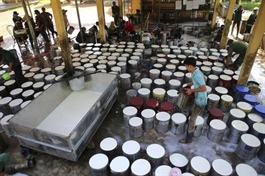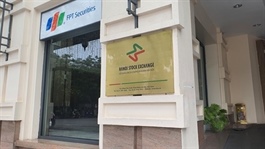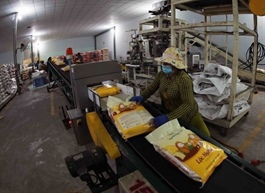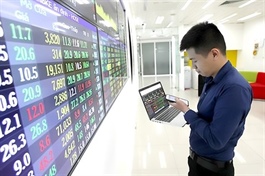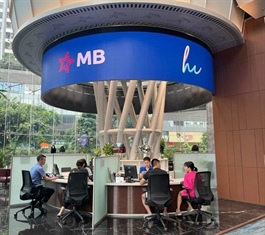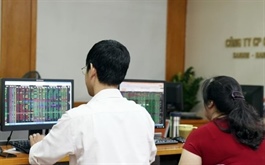Market upgrade status boosts attractiveness
Market upgrade status boosts attractiveness
The upgrading of emerging market standing by London stock market subsidiary FTSE Russell sets the stage for anticipated market upgrades by MSCI (Morgan Stanley Capital International), fostering increased participation in foreign capital influx, said insiders.
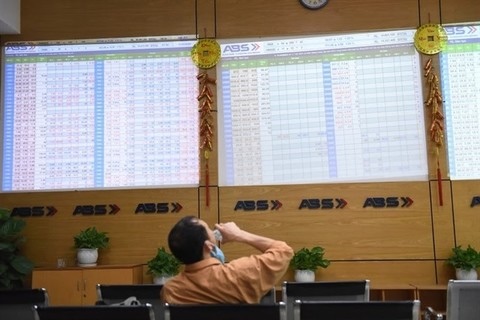
An investor observing the market movements on a trading floor of a securities firm in Hà Nội. — Photo bnews.vn |
The Vietnamese stock market serves as a pivotal channel for capital mobilisation within the domestic economy and garners significant esteem from foreign investors.
This sentiment is rooted in the youthful demographic composition, significantly higher GDP expansion compared to neighbouring markets and abundant foreign direct investment (FDI) sources, Lê Thị Lệ Hằng, Chief Strategy Officer of SSI Securities Corporation, said at a recent conference.
Việt Nam is currently also reaping substantial benefits from the shift of numerous major global manufacturing conglomerates from China.
Notably, the advancement of the Việt Nam-US relationship to a comprehensive strategic partnership has significantly bolstered the country’s technological expertise.
Foreign investors presently hold high hopes for the story of Việt Nam’s stock market ascending to the ranks of an emerging market, Hằng said. She has just returned to Việt Nam after engaging with investors in the US.
This year, an estimated US$2 billion in foreign capital is anticipated to be withdrawn. However, if included in the FTSE's emerging market stock portfolio, the market is also expected to attract about $2 billion in investments.
The upgrade to FTSE's index listing serves as a stepping stone, with further aspirations for inclusion in MSCI's emerging market category. An elevation by MSCI would prove enticing, drawing in a plethora of investors to engage in Việt Nam’s stock market.
“The market usually reacts ahead of news. Therefore, the emergence of new funds is imminent once the possibility of the stock market being upgraded in the FTSE index basket is perceived," Hắng noted.
"However, the upgrade also hinges on whether the stock market introduces fresh narratives or new commodities to serve as catalysts."
She also pointed out that new commodities remain an unresolved constraint on the domestic stock market.
In recent years, there have been limited new choices on the market.
For instance, examining the VN30 basket reveals a scarcity of new products. Meanwhile, the market necessitates 100 per cent pre-funding, posing significant challenges for foreign investors who may need to invest and trade before funds are fully available or even before preparing or transferring funds, resulting in delayed trading.
Additionally, the relatively low foreign room ratio acts as a notable obstacle.
These constraints imply that foreign investors, despite their desire to allocate more to the Vietnamese market, must exercise patience and hope for expanded room to enhance liquidity.
In the most optimistic scenario, Hằng forecasted that Việt Nam will receive an upgrade by FTSE around September 2025 and be added to the roster of emerging market indices by March 2026.
Securing an upgrade from FTSE will set the stage for a potential elevation by MSCI down the line. While an immediate capital influx may not be guaranteed, the expectation is for a gradual increase in capital inflow over time.
In order to achieve the market upgrade goal by 2025, the Prime Minister has directed relevant ministries to address the key obstacles impeding the market upgrade process.
Presently, active preparations are in full swing across these ministries and departments. The Ministry of Finance, the State Securities Commission (SSC), and depository banks are actively formulating strategies, securities firms such as SSI and TCBS are proactively skilling up their workforce, technology and financial capabilities in preparation for the stock market upgrade.
Recently, the SSC published a draft circular that aims to amend and supplement several articles of four existing circulars governing the stock market, including regulations concerning securities trading, clearing and settlement, operations of securities firms and disclosure mandates on stock exchanges.







